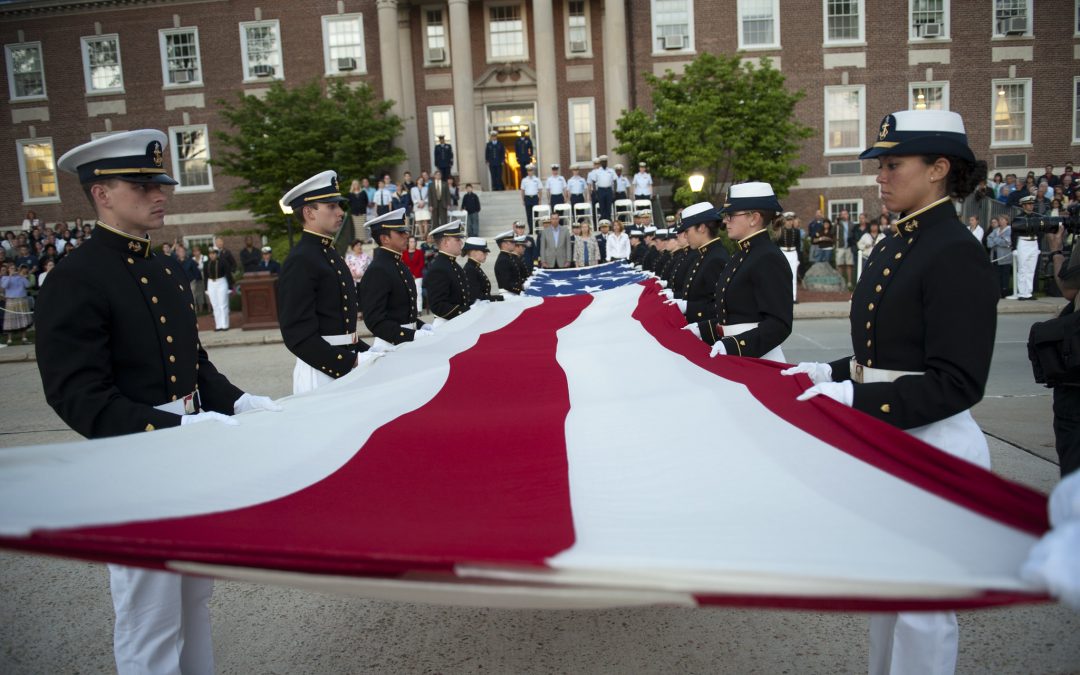Leading with Character: Respect
In this series of blog posts, we’re exploring the US Coast Guard’s core values of honor, respect, and devotion to duty. This week’s focus is on one I believe is particularly relevant today—respect.
Respect–We value our diverse work force. We treat each other with fairness, dignity, and compassion. We encourage creativity through empowerment. We work as a team.
Creating a Culture of Respect
Respect is a small but very powerful word. It breaks down barriers in a way nothing else can. Only by creating a culture of respect can an organization succeed in fostering workplace climates that unite and strengthen, not divide and weaken. Creating a culture of respect requires people to actively engage in a shared commitment to building trust and earning respect. That applies to relationships between peers, between supervisors and subordinates, and with an organization’s customers and stakeholders. All members of the workforce, from the junior most person to the top executive, deserve to be treated with respect and decency for who they are and what they contribute to the mission.
It’s no coincidence that respect is central to the Coast Guard’s core values of honor, respect, and devotion to duty. The Service’s founding father, Secretary of the Treasury Alexander Hamilton, made sure of that when he established the Coast Guard’s predecessor, the Revenue Cutter Service, in 1790 to enforce the fledgling nation’s laws on the high seas.
Alexander Hamilton instilled in the Revenue Cutter Service a culture of respect that has endured over the past 230 years to the modern-day Coast Guard. Since the United States had recently fought a war to escape tyranny and earn independence, Alexander Hamilton foresaw challenges the officers of the Revenue Cutter Service would face in enforcing laws on fellow citizens. He knew success depended upon building trust and creating a culture of mutual respect between citizens and their government.
Sagely, he instructed his officers to comport themselves with prudence, moderation, and good temper, charging them as follows:
They will always keep in mind that their countrymen are freemen, and, as such, are impatient of everything that bears the least mark of a domineering spirit. They will, therefore, refrain, with the most guarded circumspection, from whatever has the semblance of haughtiness, rudeness, or insult.
With those wise words, Alexander Hamilton instilled a culture of respect that enabled the Revenue Cutter Service to adapt and thrive over the centuries.
Earning Respect
Creating and sustaining a culture of respect in an organization is no easy task and requires engaged leadership at every level. Unfortunately, people tend to take respect for granted and fail to realize that respect must be earned in the workplace every single day. This requirement applies even to the most senior executives, who should never presume respect derives from position power alone. Seeking to earn the respect of their subordinates will help executives maintain their humility, a central tenant of servant leadership.
No one did this better than Sam Skinner when he served in the George H.W. Bush administration as Secretary of Transportation, and thereby as the Coast Guard’s service secretary. Secretary Skinner had selected me as his military aide, and he taught me lasting core values leadership lessons. Secretary Skinner’s driver, Lloyd, was a man who took great pride in his job. He reported to work every morning in a perfectly-tailored three-piece suit. The car was always meticulously clean, and Lloyd made sure Secretary Skinner was always on time for his events.
As the military aide, I traveled everywhere with Secretary Skinner. At first, I was surprised to witness the incredibly busy and famously fast-moving Secretary slow down to take time with Lloyd, asking about his family and treating him with the same respect he would give his senior executives. Lloyd responded by doubling down, if that was even possible, on his service to Secretary Skinner. In fact, we all did! We knew the Secretary respected each of us for what we brought to the table, and for what we delivered as a team. He made us each feel indispensable in our service to something far bigger than ourselves—our President and our Nation.
There are countless ways to demonstrate respect in the workplace, and leaders of character will discover and employ them. Those who respect others will earn respect themselves, creating a virtuous cycle leading to a positive organizational culture and workplace climates.
Look in the mirror. Have you acknowledged the most junior person in your workgroup lately? Does that person feel like he or she is indispensable to your team or organization’s mission?
Please join me again next week for more on Leading with Character.



